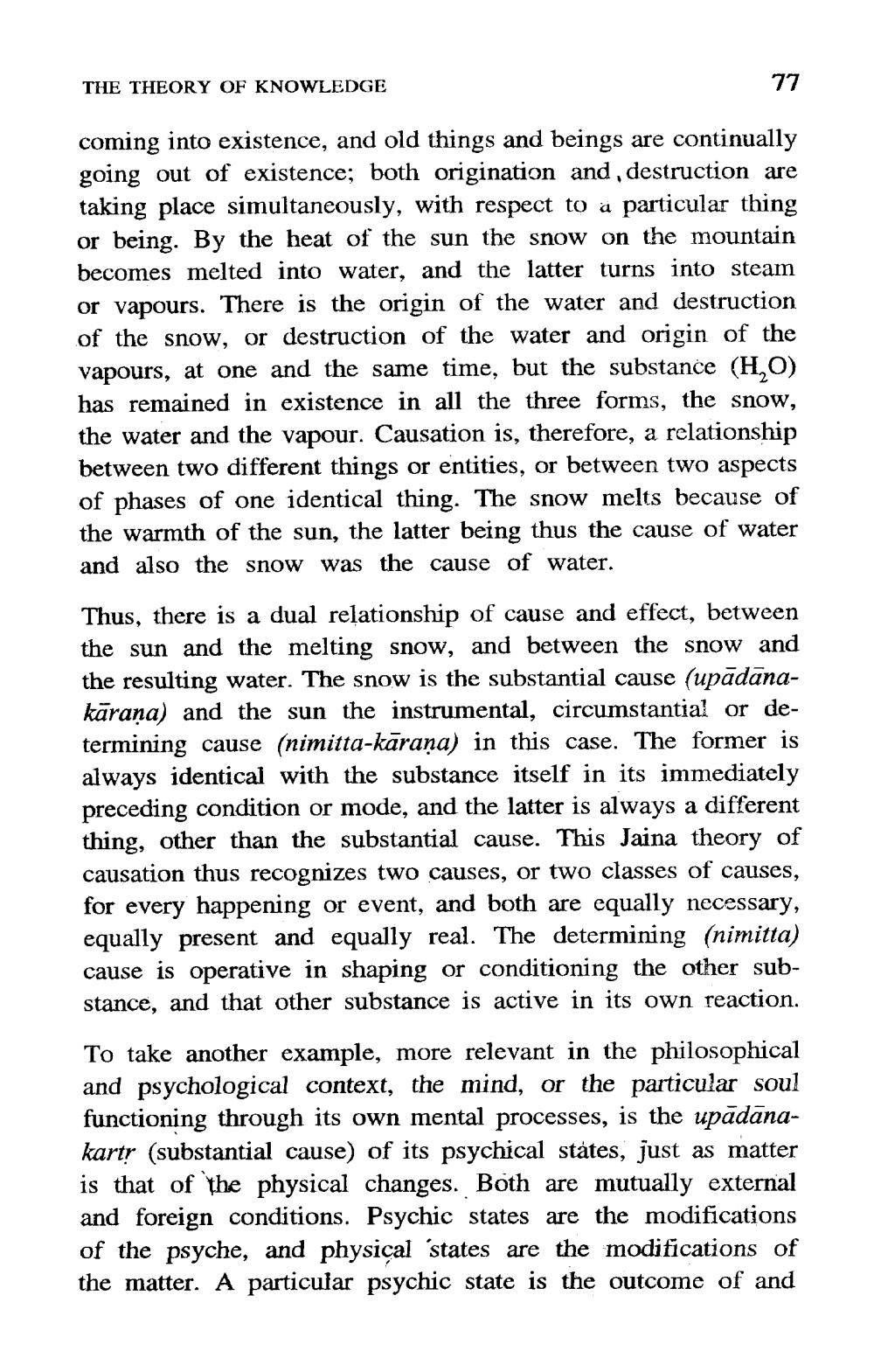________________
THE THEORY OF KNOWLEDGE
77
coming into existence, and old things and beings are continually going out of existence; both origination and destruction are taking place simultaneously, with respect to a particular thing or being. By the heat of the sun the snow on the mountain becomes melted into water, and the latter turns into steam or vapours. There is the origin of the water and destruction of the snow, or destruction of the water and origin of the vapours, at one and the same time, but the substance (HO) has remained in existence in all the three forms, the snow, the water and the vapour. Causation is, therefore, a relationship between two different things or entities, or between two aspects of phases of one identical thing. The snow melts because of the warmth of the sun, the latter being thus the cause of water and also the snow was the cause of water.
Thus, there is a dual relationship of cause and effect, between the sun and the melting snow, and between the snow and the resulting water. The snow is the substantial cause (upādānakāraṇa) and the sun the instrumental, circumstantial or determining cause (nimitta-kāraṇa) in this case. The former is always identical with the substance itself in its immediately preceding condition or mode, and the latter is always a different thing, other than the substantial cause. This Jaina theory of causation thus recognizes two causes, or two classes of causes, for every happening or event, and both are equally necessary, equally present and equally real. The determining (nimitta) cause is operative in shaping or conditioning the other substance, and that other substance is active in its own reaction. To take another example, more relevant in the philosophical and psychological context, the mind, or the particular soul functioning through its own mental processes, is the upādanakarty (substantial cause) of its psychical states, just as matter is that of the physical changes. Both are mutually external and foreign conditions. Psychic states are the modifications of the psyche, and physical states are the modifications of the matter. A particular psychic state is the outcome of and




